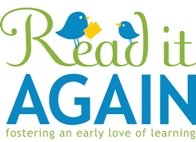Why Building Your Child’s Vocabulary is SO Important!
Part 1
The research consistently emphasizes the critical role of vocabulary development in shaping a child's cognitive abilities, academic success, and social skills, with long-term implications for their overall well-being and future achievements. Here are a few research-based facts regarding the significance of building a child's vocabulary:
Research suggests that a strong vocabulary is linked to overall cognitive development in children. It is associated with better problem-solving skills, critical thinking abilities, and enhanced cognitive flexibility.
Numerous studies have shown a strong correlation between vocabulary size in early childhood and later academic success. Children with larger vocabularies tend to perform better in reading comprehension, writing, and overall academic achievement.
Vocabulary development in early childhood prepares children for the academic challenges they will face in school. It gives them a head start in grasping new concepts, understanding instructions, and participating actively in classroom activities.
A strong vocabulary is closely linked to reading comprehension. Children with a rich vocabulary can more easily understand and interpret the meaning of words in context, making reading a more enjoyable and successful activity.
Longitudinal studies have shown that vocabulary development in early childhood has lasting effects on various aspects of life, including educational attainment, employment opportunities, and overall cognitive functioning.
Regular exposure to rich language environments, reading aloud, and engaging in meaningful conversations with parents contribute significantly to a child's vocabulary growth.
Pace et al, Early Childhood Education Quarterly, (2019)
A. Fernaud et al, Developmental Science, (2012)
M. Rowe et al, Child Development, (2012)

